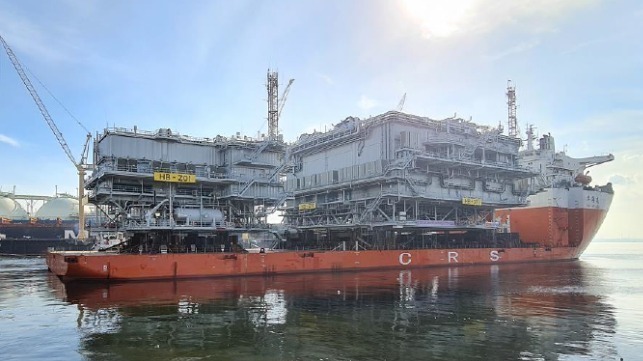UK and Germany Sign Offshore Wind Partnership

Europe’s two largest economies, Germany and the UK, have entered into a partnership providing a blueprint for their cooperation in clean energy. The partnership was signed last week in London by UK’s Energy Security Secretary Claire Coutinho and Germany’s Vice Chancellor Robert Habeck.
The new partnership emphasizes cooperation in offshore wind and electricity interconnection, as well as removal of regulatory barriers to accelerate the deployment of offshore hybrid projects (combined grid transmission and offshore wind power).
In addition, the two countries agreed to share industry knowledge and expertise to improve the exploration of carbon capture, utilization and storage, including cross-border transport of CO2.
“The UK and Germany agree on the importance of clean and affordable energy. We are already working together in the North Sea to deliver our world-leading offshore wind ambitions, as well as linking our countries with subsea electricity cables. This agreement will see us extend and deepen our partnership in the green transition,” commented Coutinho.
British and German companies are already collaborating on joint projects in the North Sea. Around 75 percent of the installed wind capacity in the North Sea is in German and British waters. This is part of UK’s commitment to install up to 50 GW of offshore wind, including up to 5GW of floating wind, by 2030. Germany has a target of 30 GW by 2030.
With these high ambitions for electricity generation, Germany and the UK are also jointly implementing interconnector projects with an aim of integrating their energy markets. One such project is the NeuConnect, which will link the Isle of Grain in Kent, England with the Wilhelmshaven region in Germany.

that matters most
Get the latest maritime news delivered to your inbox daily.
The first phase of the $3 billion project was completed last week, involving laying of the first subsea electricity cable between the UK and Germany. The project is scheduled to be fully operational in 2028, allowing up to 1.4 GW of electricity to move in either direction, enough to power around 1.5 million homes.
“Clean power generation is front- and-center of the UK’s strategy to reach net zero by 2050. This partnership will support these aims by providing a blueprint on energy and climate between Europe’s two largest economies,” said Beverley Cornaby, Director, Policy and Systems Change Collaborations, Cambridge Institute for Sustainability Leadership (CISL).
